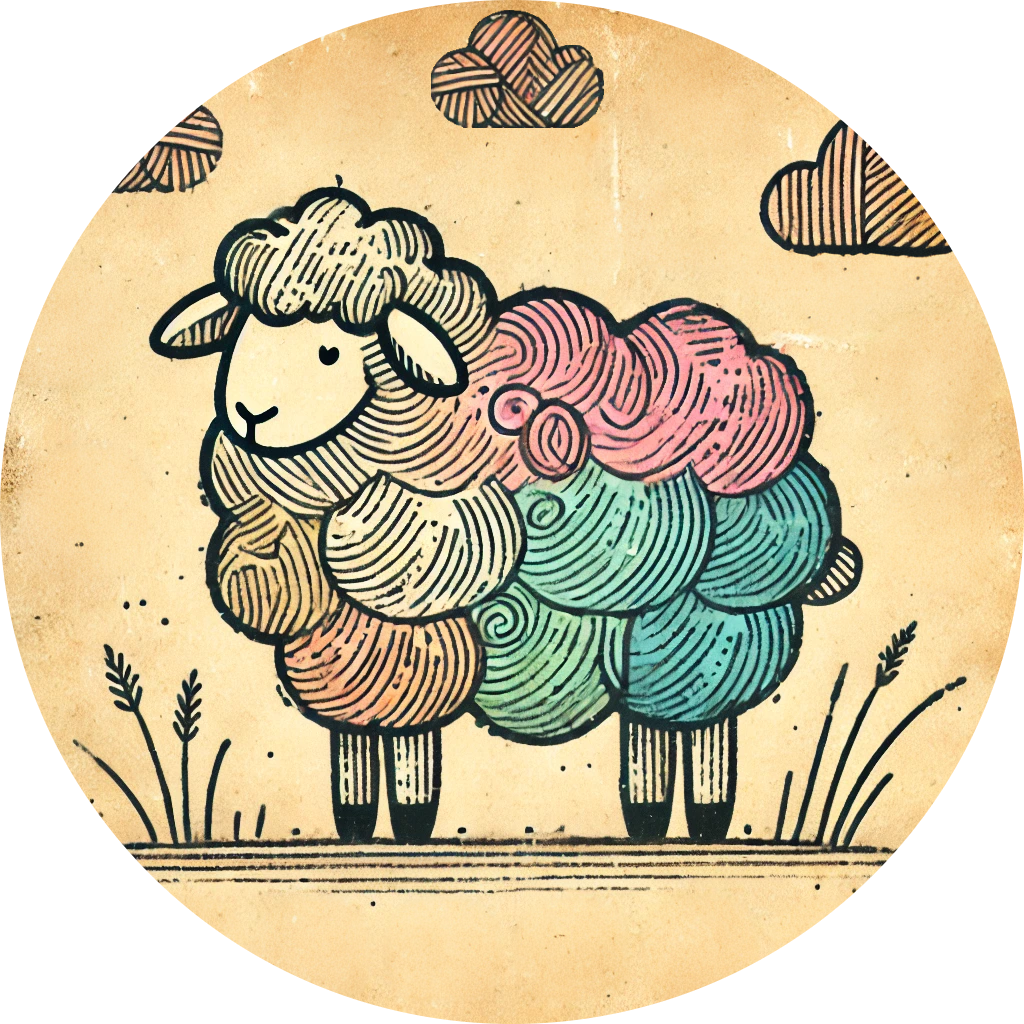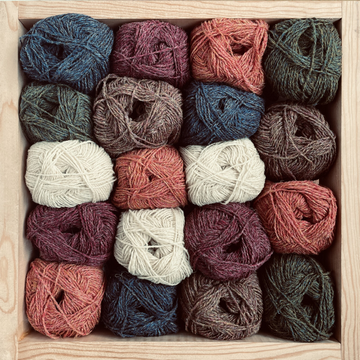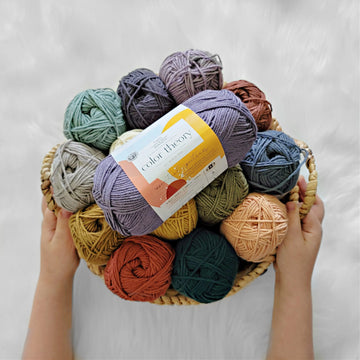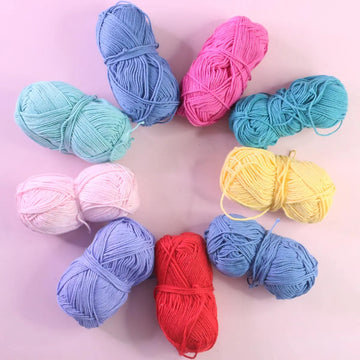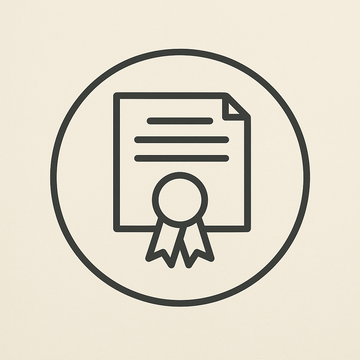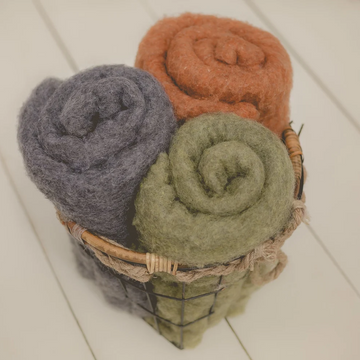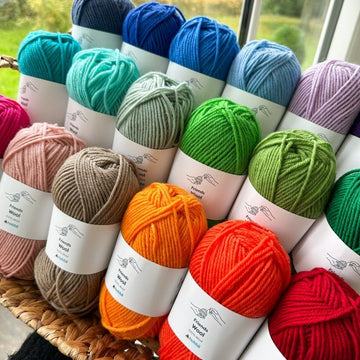What Does "European Origin" Mean? A Guide for Conscious Crafters
bij Adriaan Vonk op Mar 18, 2025
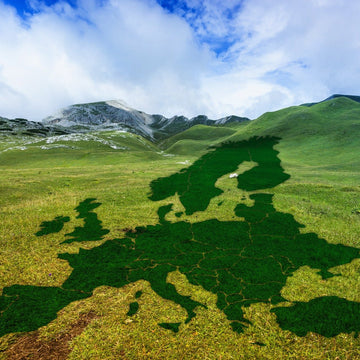
At Knitted Clouds, we believe that where your yarn comes from matters. That’s why we proudly offer European Origin wool—high-quality, ethically sourced yarn from local farms and mills across Germany, Finland, the Netherlands, France, and beyond.
But what does European Origin really mean, and why is it so important? In this blog, we’ll explore how European wool production goes beyond many certifications, ensuring higher animal welfare, environmental responsibility, and sustainable craftsmanship.
What Does "European Origin" Mean?
When you see European Origin on our yarns, it means that:
✅ The wool is sourced from farms and mills within Europe, ensuring traceability, high quality, and responsible production.
✅ It adheres to some of the world's strictest regulations for animal welfare, environmental sustainability, and fair labor practices.
✅ It comes from small-scale farms and traditional wool mills in countries like Germany, Finland, the Netherlands, and France, where wool production is deeply rooted in history and craftsmanship.
✅ Every farm and mill we work with is carefully selected to meet our high ethical and quality standards—often exceeding even global certifications.
Unlike mass-produced, globally shipped wool, our European Origin yarns have shorter supply chains, lower carbon footprints, and a deep connection to the land they come from.
Why European Wool Standards Matter More Than Some Certifications
Many certifications—such as GOTS, RWS, or OEKO-TEX®—focus on specific aspects of sustainability, but European wool production often meets or exceeds these standards as part of strict EU regulations.
🐑 Animal Welfare: One of the Strictest in the World
European Union laws set some of the highest standards for animal welfare, ensuring that sheep are treated humanely and ethically at every stage of wool production. This means:
- No mulesing – Unlike some wool-producing countries, mulesing (a painful practice) is banned in the EU.
- Proper grazing conditions – Sheep must have access to natural, well-maintained pastures with sustainable land management.
- Veterinary care – Farmers must follow strict guidelines for animal health and treatment, ensuring that sheep are cared for without unnecessary suffering.
- Regular inspections – EU farms must prove their compliance with these welfare laws, often going beyond the requirements of certifications like RWS.
While some certifications focus only on wool processing, European Origin wool guarantees ethical treatment of animals from farm to fiber—something that not all global certifications cover.
🌍 Sustainability & Environmental Protection
Wool production can have a huge environmental impact if not managed responsibly. The EU has some of the world’s toughest regulations for:
- Water usage – Strict guidelines ensure that wool washing and dyeing don’t contribute to water pollution.
- Chemical restrictions – EU laws limit or ban hazardous substances, meaning that all wool processed in Europe is already held to higher safety standards—even before certifications like OEKO-TEX®.
- Carbon footprint reduction – European wool production focuses on shorter supply chains and local processing, reducing unnecessary transportation emissions.
- Biodiversity protection – European farms follow sustainable land-use policies that protect soil health, water quality, and ecosystems.
Many certifications, like GRS (Global Recycled Standard) or OEKO-TEX®, focus only on the final product, but European Origin guarantees sustainability throughout the entire production process—from farm to finished yarn.
👩🌾 Fair Labor & Ethical Production
Unlike some parts of the world where textile workers face low wages and unsafe conditions, EU labor laws ensure:
✔️ Fair wages and safe working conditions for farm workers, mill employees, and dyers.
✔️ No child labor or forced labor, which is still an issue in some non-EU textile production.
✔️ Transparency in the supply chain, meaning that the origin of the wool can be traced back to specific farms and mills.
This level of accountability and ethical production often exceeds global fair trade certifications, making European Origin wool a more transparent and trustworthy choice.
How We Represent "European Origin" at Knitted Clouds
At Knitted Clouds, we believe that crafting should be a sustainable and ethical experience. That’s why we only work with European farms and mills that meet our high standards.
We don’t just trust labels—we personally ensure that the wool we offer meets our values. Before adding a yarn to our store, we check:
✔️ How the animals are treated – Are they raised in humane, natural conditions?
✔️ How the wool is processed – Are chemicals kept to a minimum? Is the dyeing process eco-friendly?
✔️ Who makes it – Are farmers and mill workers treated fairly?
✔️ Environmental responsibility – Is the farm or mill committed to reducing waste and pollution?
By choosing European Origin wool from Knitted Clouds, you are not just buying yarn—you’re supporting a fair, sustainable, and responsible wool industry.
Final Thoughts: Why European Origin Wool Matters
While many certifications set good standards for wool production, European laws already enforce some of the highest ethical, environmental, and quality standards in the world. Choosing European Origin wool means that you are selecting yarn that is traceable, sustainably sourced, and ethically produced—even beyond what some global certifications require.
At Knitted Clouds, we are proud to offer wool from trusted farms in Germany, Finland, the Netherlands, France, and beyond. Every skein we sell meets our strict quality, ethical, and sustainability standards, so you can craft with confidence, knowing your materials are as responsible as they are beautiful.
🧶 Looking for high-quality, ethically sourced European wool? Browse our European Origin collection here!
